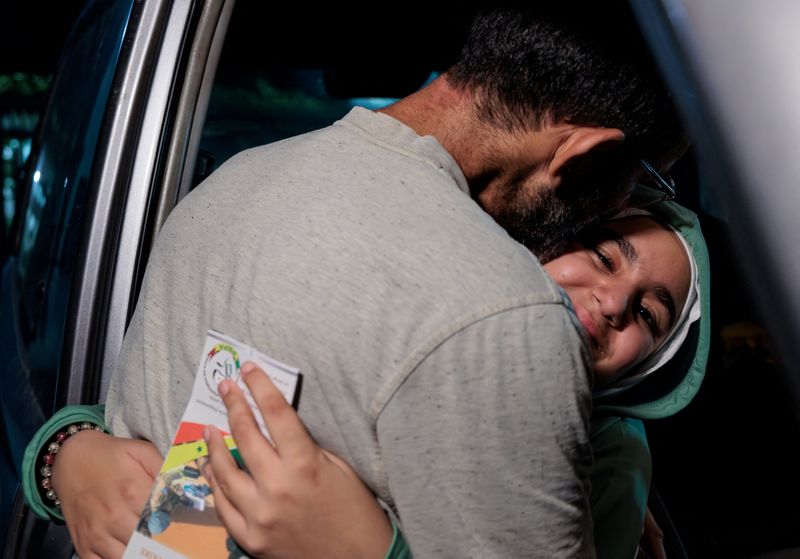By Portia Crowe and Ngouda Dione
DAKAR (Reuters) - Hussein Hachem hugged his injured daughter as she arrived in Senegal on a flight repatriating citizens escaping the escalating conflict in Lebanon. His 14-year-old son was not with her - killed, he said, when their home was bombed.
As Israeli forces pounded southern Lebanon and Beirut's southern suburbs in a broadening offensive against Hezbollah, Hachem's daughter Mariam, 11, who had suffered a broken foot, was among 117 Senegalese flown to Dakar on a government-organised flight.
"I lost everything. I lost my son. I lost my house. All my dreams," he said, speaking amid emotional scenes outside the Leopold Sedar Senghor International Airport, where families were reunited with loved ones late on Saturday.
"We have a 14-and-a-half-year-old son who just disappeared like that. Ten minutes before, I was talking to him. 'Hello?' He said, 'Dad, you're going to come get me?' I told him 'yes' ... Ten minutes later, they called me: 'there's no more house, no more son'."
Senegal has a significant Lebanese diaspora community, and has historical ties to both Lebanon and Palestine.
"The Senegalese government, of course, is condemning the Israeli army's bombardment in Lebanon, the bombardment of civilians... the destruction of infrastructure," the country's foreign minister, Yassine Fall, said in an interview with Reuters on Saturday evening.
She said there had been about 1,000 Senegalese nationals in Lebanon but that some had left by their own means before the repatriation flight.
Fall also highlighted her country's longstanding relationship with the Palestinian people, dating back to 1975 when Senegal chaired the United Nations Committee for the Exercise of the Inalienable Rights of the Palestinian People.
"We are very, very disappointed to see the world watching a genocide happen under our eyes, children being killed, children being shot in the head, hospitals being bombarded, sick people not being able to be evacuated, people in refugee camps that are not fighting, that are civilians, being maimed and killed," she said in reference to the war between Israel and Hamas in Gaza.
"So Senegal, with other countries, we are really side by side condemning this and calling it what it is: it is a genocide."
Israel has strongly rejected accusations of genocide, including in a case brought by South Africa at the World Court.

It says it is acting in self-defence after an Oct. 7, 2023, attack by Palestinian Hamas militants. The Hamas attack killed 1,200 people with about 250 also taken as hostage, according to Israeli tallies, and triggered a conflict that has since spread from Gaza to Lebanon.
Earlier on Saturday, demonstrators marched through Dakar to protest against Israel's actions in Gaza and Lebanon and call for a ceasefire in the widening Middle East conflict.